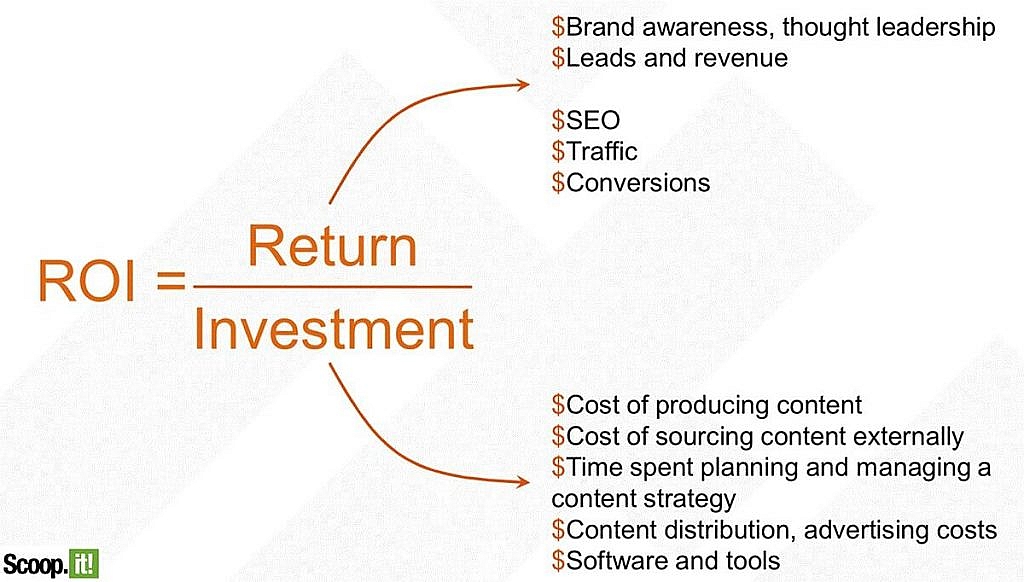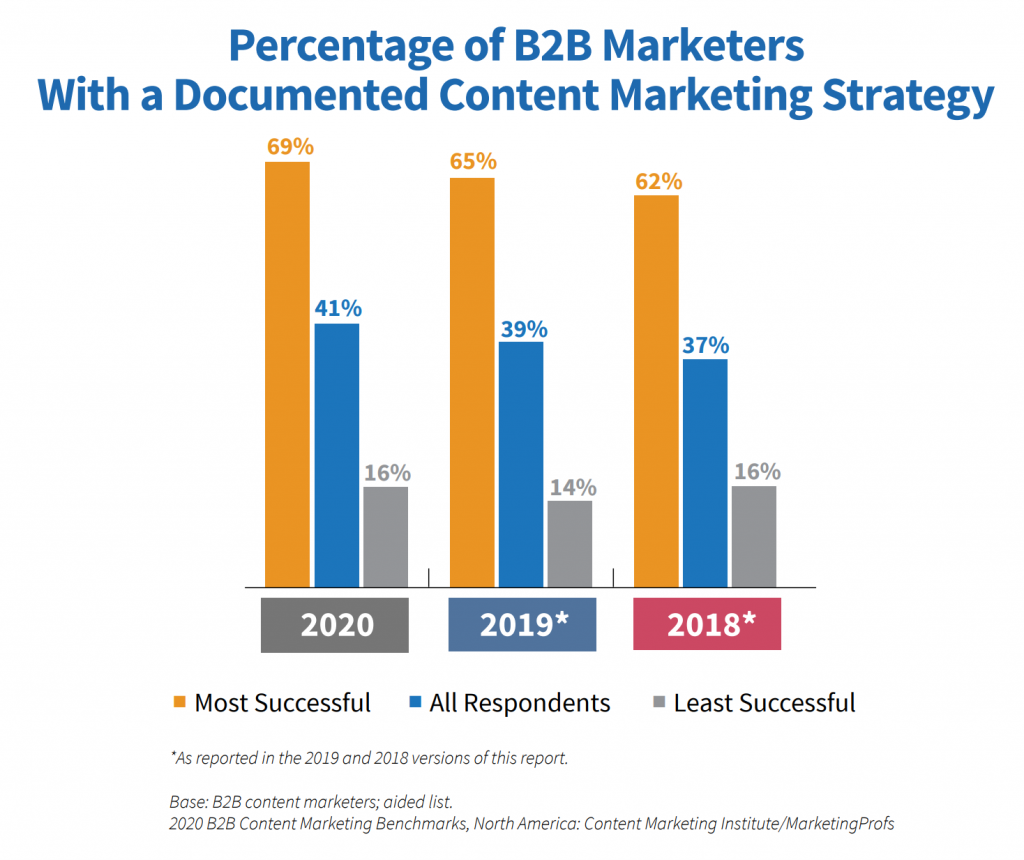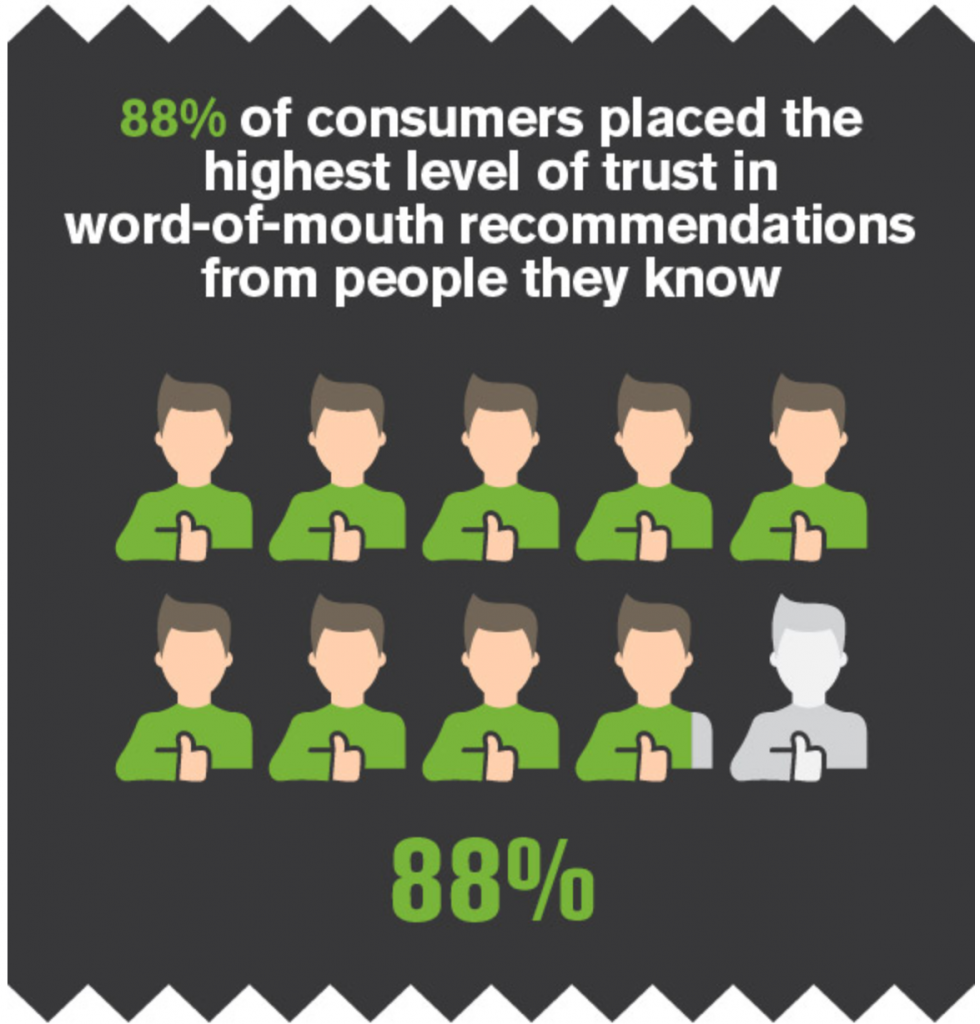6 Proven Ways to Increase Your Content Marketing ROI
Want to learn how to increase your content marketing ROI? Are you looking for content marketing tips that will boost your return on investments? This article will show you how in a moment.
Content marketing is a profitable business undertaking. But you need to produce insightful materials that connect with your ideal reader frequently. However, you may also use existing blog content to boost your ROI.
It all depends on your content marketing objectives. For example, your goal could be to:
- Increase social media shares and engagement
- Boost publicity and brand awareness
- Increase organic traffic
- Build quality links
- Generate leads
- Boost sales
- Improve income
Achieving these goals takes time and effort, but the outcome is all that matters. So, with a viable marketing approach, you can increase your ROI faster than you imagine.
But before we go further, let us define content marketing ROI.
What Is Content Marketing ROI?
Content marketing ROI is a primary aspect of your content marketing campaign. It highlights the benefits you obtain from investing time, effort, including money into creating, distributing, and promoting your materials.
Thus, content marketing ROI is the ratio that reveals the profit you generated from your content marketing effort as against the amount you spent. So, it is a vital marketing metric of a successful content marketing campaign.
However, you should know how to quantify your return on investments (ROIs) to identify the gains and losses you made. Your ROI helps you to see how well you performed, or the effectiveness of your content marketing activities over time.
So, let us look at the most natural way to calculate content marketing ROI.
How to Calculate Content Marketing ROI
There are several ways of calculating ROIs and still arrive at the same result. But, the simple formula for estimating your content marketing ROI is; net earning/profit – total investment / total investment x 100. See the screenshot below:

For example, let’s say you invested a total of $400 into your content marketing program, and generate total revenue of $2,000. Your net profit is 400%. How is that so?
Here is how to do it;
Total return $2,000 — $400 total investment = $1,600 net income.
Therefore, $1,600 net income / $400 total investment x 100 = 400%.
So, from the calculation, you can see that your content marketing ROI is worth your effort with a 400% profit after expenses. Nonetheless, I stated earlier that your content marketing success is not always monetary gains.
It is about the goals you want to achieve, as outlined in the introduction of this article. But understanding your ROI is essential as it helps you know whether you’re reaching your goals or not.
Here’s a graphic by Scoop.it that shows content marketing objectives and possible investment. For more on how to measure your ROI and the metrics to evaluate, read this post by Optinmonster.

Why You Need to Understand Your Content Marketing ROI
As stated earlier, understanding the ROI of your content marketing effort is crucial because it lets you know whether your marketing activities are paying off or not. Else you may be wasting your energy without knowing it.
For instance, content engagement and brand discovery are vital factors that determine your content marketing success. But your content objective may not be the dollar but other marketing goals, such as:
- Social media shares
- Increased engagement
- Backlinks
- Conversions
Thus, publishing tons of blog posts regularly is not sufficient to make you a success. But you will have success if the blogs you publish harmonize with your targets.
So, if you do not understand your ROI, you won’t be able to measure those metrics. As a result, determining your content marketing ROI becomes impossible. That is why you need to understand your content marketing ROI to help you measure and improve your campaign based on the results.
How to Improve Your Content Marketing ROI In 7 Simple Steps
While there are different ways to boost content ROI, I have put together the top six content tips that are proven to work.
1. Improve Your Website User Experience (UX)
While publishing quality content is vital, the platform where you serve your blog posts is also critical. So, do NOT neglect it. If users find your blog or website unattractive, they will bounce.
But an engaging and attractive blog will draw in more readers. Moreover, as part of Google ranking factors, it will increase your Google search ranking. Google has been using user signals via AI (RankBrain) to rank web pages.

The user signals it employs include:
- Click-through rate
- Time on page
- Bounce rate
Google also uses the overall content relevance to determine your page rank. It means that if searchers from Google land on your page and interact with your content without returning instantly to the search page, Google will think your content is relevant to the user’s needs.
But if a searcher lands on your page and returns to Google search immediately, Google will conclude that your content is not relevant to the search query. And if more users should bounce without any interaction with your page, Google deems your blog posts irrelevant.
In consequence, it becomes a challenge to rank your site. Users must be able to access your blog and find value. So, to improve UX, your website must be accessible to users. It should load fast and easy to navigate.
Also, your blog posts should be:
- Valuable
- Useful
- Credible
- Accessible
Google utilizes these indicators to rank your blog or website. So, if you’re not sure about your site, evaluate it, and make necessary adjustments to enhance website UX. You may want to look at the factors that impact the user experience.
2. Create a Content Marketing Strategy and Document It
Content marketing helps you connect with your target buyer; that is why it is the most crucial asset that should be in your digital marketing toolbox. It helps you:
- Educate your audience
- Build trust
- Nurture subscribers
- Encourage leads, and
- Convert prospects to loyal customers.
But for your content marketing campaign to be effective, you need to create a content marketing strategy. A viable content strategy is a system or framework that guides you in all touchpoints of the content marketing processes, including:
- Planning
- Development
- Creation
- Promotion
- Delivery, and
- Content management.
The intended goal of a content strategy is to aid you in managing and creating valuable materials that will help you achieve your marketing goals.
Moreover, creating a content strategy is not all there is; you should document it as well. Writing your system of content marketing approach will help boost your content marketing success. Research reveals interesting facts about having a documented content strategy.

The survey indicates a steady increase in brands that are documenting their content marketing strategy. You can see the numbers have grown from 37% in 2018 to over 40% in 2020. But the best part is that almost 70% of successful marketers documented their content strategy.
The idea is, if you want to improve your content marketing ROI significantly, you should develop a content strategy and make a record of it.
3. Work With Industry Experts and Influencers
There are several reasons/benefits to working with experts and influencers in your industry. But I will highlight three-pointers why you should partner with experts:
- Industry Knowledge: Working with industry experts is ideal because they have years of proven track record and vast knowledge of your industry. So, taking advantage of their experience will boost your capability, decision making, and eventually grow your ROIs.
- Marketing/Historical Viewpoint: Based on marketing and historical insights, industry experts can rapidly evaluate the market and predict positive marketing trends that will benefit your business. They listen to the market and react accordingly with positive outcomes.
- 360-Degree View: Experts use both internal and external data to help you succeed. They make decisions based on comprehensive knowledge on the industry, and NOT on speculations.
Similar to working with experts, partnering with influencers will increase your content marketing ROI significantly. Why? Because they use word-of-mouth marketing (WOMM) to persuade consumers to buy from you.
WOMM is one of the most effective forms of marketing tactics, as almost 90% of buyers trust recommendations from people they trust. Please, be reminded that influencer marketing is the modern form or digital form of WOMM.

Also, niche influencers already have a massive follower base?the exact audience you want on your website. These are people who view influencers as experts and are willing to buy what they offer.
In other words, influencers control consumers buying behavior. And since your marketing activities are online, you can analyze the effectiveness of your collaboration. Influencers utilize SEO copywriters to produce informative content for humans and search engines.
They create content tailored to your marketing persona that helps to:
- Improves brand awareness
- Drive organic traffic
- Increase site engagement and
- Ultimately convert leads.
Put simply, influencers help you expand your brand reach and increase ROI.
4. Produce Evergreen Blog Content Frequently
A content marketing strategy without quality content will fail. Users want the information to solve their problems, and if you can’t give them that, they will bounce and embrace your competitors. But if you are giving them blog content that connects with them—materials they can always go back to, you’ll become their go-to solution.
Evergreen blog posts are significant because they remain relevant and fresh for the longest. Because this type of content is not seasonal or produced based on news and trends, users will benefit from it for many years.
The core characteristics of evergreen blog posts are that it touches the primary problem your target audience is trying to solve and offers a solution. Consumers will always come back to it and also refer to others.
For this reason, it drives consistent traffic, attracts quality backlinks, and leads. So, creating evergreen blog content will, without fail, increase your content marketing ROI.
What Evergreen Content is Not
Keep in mind that evergreen content is NOT topical content, such as:
- Current trends
- News articles
- Statistical reports (numbers can change)
- Seasonal content pieces
- Pop culture
You can have a look at this post at the Copyblogger blog by Aaron Orendorff for inspiration on evergreen content types you can write for your blog or client. However, to create sustainable evergreen content, you must choose the right topics that connect with your loyal readers.
5. Frequently Update Your Old Content
Creating evergreen content is fantastic for long term gain. But some blog posts on your site may not be performing well in terms of traffic and engagement. That is because they may contain outdated strategies, statistics, and or tips that are not useful to your ideal reader.
It means that the post is out of date, and no one is reading the content. As time goes by, new statistics and trends replace old numbers, which calls for an update.
Also, updating your content offers you the opportunity to add more relevant keywords for SEO best practices. This blogging approach helps keep your posts fresh and relevant to the reader.
As a result, Google crawlers will boost its visibility and search ranking by pushing it to the top of search engine results pages (SERPs). This process is a win for your content marketing strategy, particularly now that almost 70% of bloggers update their older articles.

You can see steady growth in the ratio of bloggers who update their posts. According to Andy Cretodina of Orbit Media, bloggers who do keyword research and those who publish original research are more likely to edit old blog posts.
The blogging expert also noted that it is a powerful way to improve search rankings and increase web traffic. So, to improve your content strategy ROI, make it a habit to update old blog posts regularly with new relevant data.
6. Know Your Core Metrics
In all marketing processes, without analyzing your metrics, you will be at a loss. It is important to understand the metrics that matter most to your marketing campaign so that you can better optimize your content to accomplish your targets.
This step is essential because knowing what pages drive the most traffic will help you optimize other pages to convert more leads. For example, if your product sale is taking a nosedive, your sales metric will enable you to analyze performance and make the right adjustments to improve sales.
The same procedure applies to content marketing strategy. Bear in mind that all traffic is not the same. Why is that so? Because not all traffic converts visitors to leads. So, understanding the traffic that converts the most will aid you in knowing your marketing persona better.
Indeed, knowing your core metrics will show you the consumer buying pattern, as well as trends and keywords that are driving your conversion. It enables you to determine what is working for your content marketing strategy and what is not.
You can use your desired content marketing tool to evaluate your performance. But the most popular among marketers is Google Analytics. This free analytics software lets you analyze all your data and make better marketing decisions.
Wrapping Up How to Increase Your Content Marketing ROI
Improving your content marketing return on investments is not as hard as it may seem. A combination of content tactics and actionable steps will help you boost your content marketing ROI.
There are six-pointers in this article, and all of them are linked together. Apply them in your marketing mix and keep testing your results to define what works best for you.
Here is a summary of the pointers to take home:
- Improve your website user experience
- Develop a content marketing strategy and document your strategy
- Partner with influencers and industry experts
- Write evergreen blog posts regularly.
- Update old content frequently.
- Understand core marketing metrics
Would you like to add more tips and insights to this article? Tell us about it in the comments!
